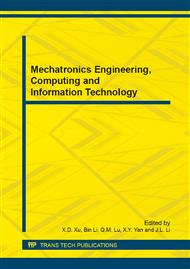p.5797
p.5801
p.5805
p.5809
p.5813
p.5817
p.5822
p.5825
p.5829
Study on the Cloud Computing in Digital Libraries
Abstract:
As a user-centered hub of communication and equipment, cloud computing could provide powerful data storage, web services and other superior internet functions. The digital libraries have to face with some technique and service problems along with many advantages relative to the traditional libraries, and all these produce the practical needs of cloud computing. Cloud computing has influenced information resources, information users, information personnel and information facilities of digital libraries with its unique advantages and then promoted the development of digital libraries.
Info:
Periodical:
Pages:
5813-5816
Citation:
Online since:
May 2014
Authors:
Keywords:
Price:
Сopyright:
© 2014 Trans Tech Publications Ltd. All Rights Reserved
Share:
Citation:


